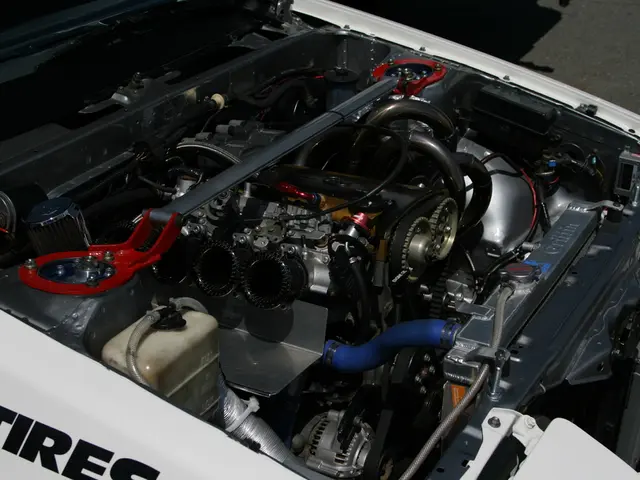United States Department of Energy to Allocate $3 Billion for Expansion of Domestic Battery Material Manufacturing
======================================================================================================================
The Biden-Harris Administration's Investing in America agenda is geared towards strengthening domestic production of advanced batteries and battery materials. This initiative aims to enhance U.S. energy security, create millions of clean energy jobs, and accelerate the transition to clean energy and zero-emission electric vehicles (EVs).
The program, administered by the Department of Energy's (DOE) Office of Manufacturing and Energy Supply Chains (MESC), will invest in research, development, demonstration, and deployment (RDD&D) activities to improve battery technology, increase competitiveness, and support sustainable, resilient manufacturing capacity within the United States.
The goal is to create a robust and reliable energy supply chain, ensuring a diverse portfolio of domestic battery technologies. The DOE recently announced over $3 billion for 25 selected projects to achieve this goal.
These projects, spanning 14 states, are expected to support over 8,000 construction jobs and over 4,000 operating jobs. They cover traditional and next-generation lithium-ion chemistries, as well as non-lithium-ion technologies.
The projects will retrofit, expand, and build new domestic facilities for battery-grade processed critical minerals, battery components, battery manufacturing, and recycling. They will also support the technologies needed for a clean energy economy, including batteries for electric vehicles, energy storage, and a range of other applications.
The selected projects span strategic segments across the supply chain, including critical mineral extraction and recycling, and manufacturing of components like electrolyte salts, solid state electrolytes, polymers for separators, cathode and anode materials.
The Biden-Harris Administration is using this program to onshore and friend-shore the supply chain for EVs and batteries. This means that the focus is not only on domestic production but also on building strong relationships with allies to ensure a secure and reliable energy supply.
The projects are integral to the President's clean energy industrial strategy to bolster a domestic supply chain that enhances America's energy security and economic competitiveness. Union partners represented across selected projects include NABTU, Boilermakers, SMART, Carpenters, Operating Engineers, UFCW, IBEW, and the UA.
However, recent policy developments such as the One Big Beautiful Bill Act (OBBBA) have introduced uncertainty by phasing out certain tax incentives that previously encouraged domestic battery and mineral production. This could potentially slow progress unless further interventions occur.
Despite this challenge, the private sector has made a historic $120 billion investment in the EV supply chain under the Biden-Harris Administration. MESC collaborates with experts to identify gaps and growth opportunities across the nation's energy supply chains to ensure continued progress in this area.
The program will boost America's manufacturing base and help tackle the climate crisis by strengthening the U.S. grid, powering homes and businesses, and supporting the electrification of the transportation sector. Nearly 90% of the selected projects are located in or adjacent to disadvantaged communities, advancing the Justice40 Initiative.
In summary, the Investing in America agenda targets strengthening domestic advanced battery production, creating clean energy jobs, and enhancing U.S. energy security by building resilient and innovative battery supply chains and manufacturing capabilities.
- The private sector's $120 billion investment in the EV supply chain, under the Biden-Harris Administration, demonstrates a strong commitment towards financing the transition to a clean energy lifestyle that leverages advanced technology in battery production.
- The Dobbs House's home battery system, a next-generation lithium-ion technology selected for funding, is an example of how the Investing in America agenda supports sustainable, resilient manufacturing, fostering a more technologically advanced and secure American lifestyle.




